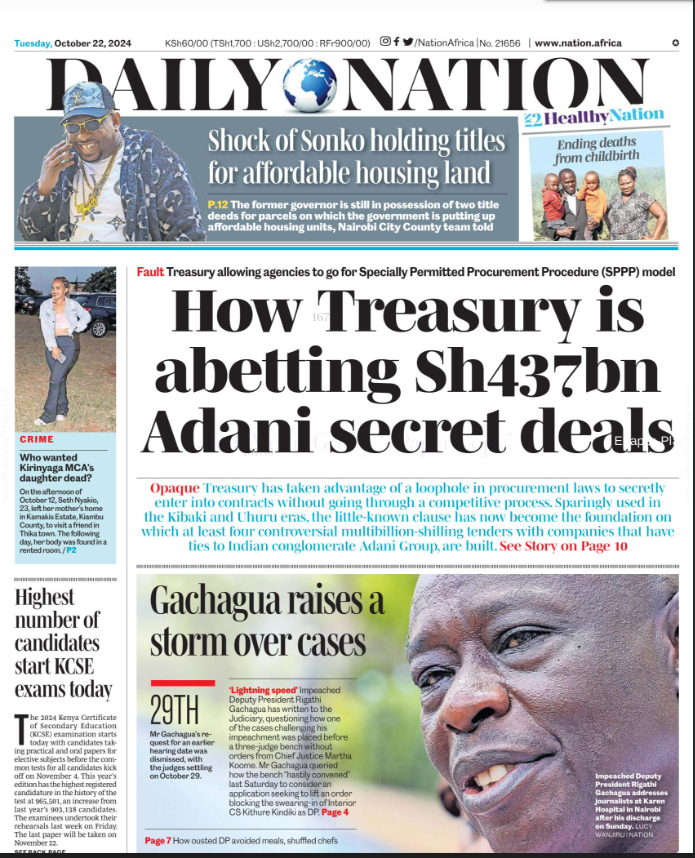Adani Fact Check Article
The October 22, 2024, Daily Nation Headline, “How Treasury is abetting Sh437 bn Adani secret deals,” is misleading and inaccurately represents the nature of the agreements in question. Contrary to the article’s claims, the Adani Group’s submissions were not conducted under the Specially Permitted Procurement Procedure (SPPP) as suggested but rather under Privately Initiated Proposals (PIPs) in accordance with the Public-Private Partnerships (PPP) Act.
Section 40 of the PPP Act outlines a rigorous process for such proposals, involving multiple layers of oversight and ensuring transparency and accountability at every stage. This distinction is crucial because it underscores the structured and regulated environment in which these deals are reviewed.
The PPP Act establishes a detailed and tiered process for PIPs, which includes various checks and balances designed to prevent the kind of unchecked decision-making that the article implies. This process begins with the contracting authority’s initial assessment of the proposal, followed by further reviews by the PPP Committee and PPP Directorate, ensuring that all deals undergo thorough scrutiny.
More importantly, the establishment of a PPP Tribunal allows for any grievances or disputes to be addressed in a formal legal framework, ensuring fairness and transparency. PPPs are governed by their own set of robust regulatory mechanisms.
The article also incorrectly conflates Public Private Partnerships (PPPs) and SPPPs, implying both are devoid of oversight. However, this is far from accurate. PPPs are governed by a well-defined legal framework that is designed to foster public interest while encouraging private sector involvement in infrastructure development.

